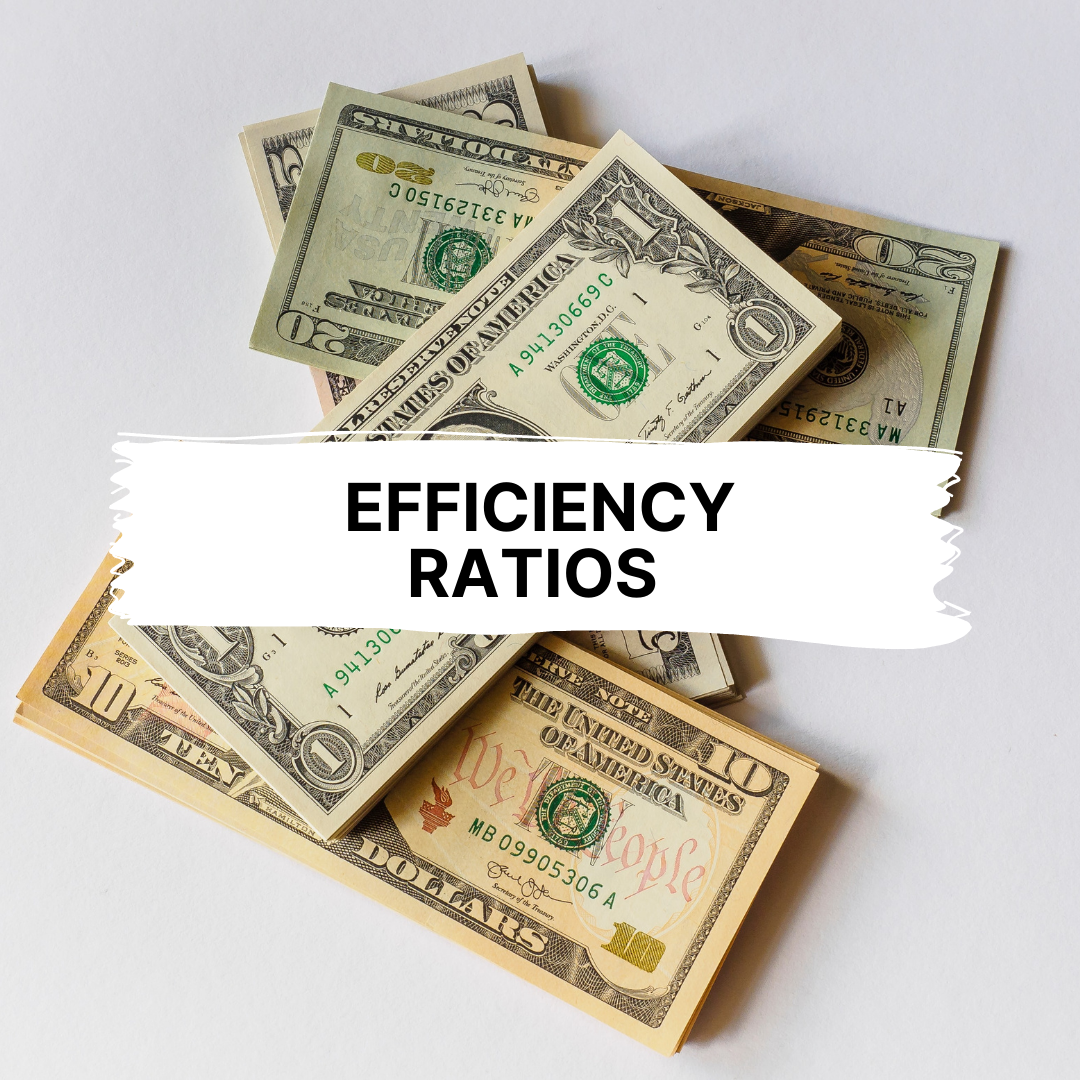“Behind Every Good Businessman, There is a Great Accountant!”
Accounting is the language of business and the backbone of any enterprise. The core word ‘Count’ in accounting refers to recording, reporting, summarizing, reconciling, and analyzing. Every business requires reliable information, data, and trends to make informed decisions. And, this is made possible by accounting managers.
Accounting for managers holds a vital part to understand the ins and outs of any business. Moreover, any business is doomed to fail if the strategic managerial accounting factors are not fully understood and implemented.
To avoid a situation like this, let's study everything associated with accounting for managers. Check out the table of content that we'll learn further:
- What’s Accounting for Managers
- Significance of Accounting for Managers
- Management Accounting and its Operations
- Role of Management Accounting
- Understanding Management Accounting System
- Tools and Techniques in Management Accounting
- Advantages of Managerial Accounting
- Limitations of Managerial Accounting
- Types of Managerial Accounting
- Management Accounting Versus Financial Accounting
Let’s begin!
What’s Accounting for Managers
Management accounting is the field of accounting concerned with presenting and distributing accounting information to management in a systematic manner. It further helps to carry out its management functions of planning, regulating, and decision-making in an effective and efficient manner.
Furthermore, managerial accounting is a set of accounting techniques focused on improving the quality of information delivered to management about key performance indicators (KPIs). Additionally, managerial accountants employ data on the cost and revenues of the company's goods and services to make decisions.
The two types of accounting, financial accounting, and managerial accounting are very identical. Both of them require the preparation of statements and reports. Also, management accounting, like financial accounting, is frequently supported by accounting software.
Nonetheless, most small business accounting software allows them to generate simple and effective financial accounting reports. Interestingly, the software helps to create customized reports and projections based on this data in a simpler way.
Significance of Accounting for Managers
For firms, management accounting is essential because it helps them to convert raw financial data into reports. These reports are analyzed and evaluated further in order to make critical business decisions.
After all, financial accounting is meaningless if you don't utilize the information to make business goals and decisions. These are some of the key business choices that management accounting plays a role in
- Cost budgeting
- Goal-setting for the company, individual teams, and divisions, and even individual employees
- Sales and variable expenditures forecasting
- Key performance indicators (KPIs) are used to track development.
- Determining the value of a firm or specific assets for the purpose of buying or selling
Management Accounting and its Operations
Management accounting is the activity of providing reports about a company's activities to help managers make long-term and short-term decisions.
Accounting components include identifying, measuring, analyzing, interpreting, and conveying data to management. Ultimately, all these elements guide a company in achieving the company's objectives and goals.
Following we have discussed some of the primary functions of management accounting:
Assist in Prediction
Forecasting assists in making decisions and provides solutions to problems. Moreover, forecasting questions help to build a strong framework for a business's future actions. It includes questions such as
- Does expanding or branching out into new markets and regions are required?
- Should a corporation invest more in equipment?
- Should it invest in a new enterprise or business?..and so on
Ultimately, management accounting assists in the resolution of crucial issues that can be utilized to predict future company trends.
Estimating Cash Flows
Cash flow forecasting and the influence of cash flows on the firm are essential. Considering where a company's future costs will come from and where its revenue will come from might assist a company in making its next moves.
Furthermore, management accounting entails the creation of budgets and trend charts. Accounting managers use this data to make decisions about how to distribute funds and resources. All these elements help in achieving the anticipated revenue growth.
Decision-Making
According to management accounting, product and cost availability work as the deciding factors in purchasing decisions. Moreover, informational data from management accounts helps when it comes to decision-making. It operates both at the operational and strategic levels.
Knowing Performance Variances
In business, performance discrepancies are the differences between what was anticipated and what was delivered. Management accounting uses analytical tools to assist managers to build on positive variations and manage negative variances.
Considering Rate of Return (ROR)
Before commencing on a project that involves a significant amount of money, it is critical to understand the rate of return (ROR). The following are important questions that management accounting can solve.
- How long will it take a corporation to break even on a project?
- What criteria should a corporation use to determine which of two investment possibilities is the most valuable?
- What do you think the cash flows will be?...and so on!
Role of Management Accounting
Any accounting manager's principal purpose is to be able to make accurate management decisions. As previously stated, managers do this by implementing the evaluation, interpretation, and dissemination processes.
Managers might make decisions for certain areas of business after gathering all of this data and information, such as costs, goods and services, and so on. It will help the company reach particular interests and objectives.
Management accountants, without a doubt, employ budgets to assess a company's operations strategy. Performance reports are also used to monitor the variations between actual and budgeted results.
Understanding Management Accounting System
Internal management accounting systems give critical information to management for functional firm decision-making. A manufacturing company could use these solutions to help with the costing and administration of its process.
A legal firm, for example, may use management accounting systems to assist with billing and invoicing and other internal requirements.
However, accounting systems vary according to the industries in which they are utilized, and provide for industry-specific capabilities and reporting.
Tools and Techniques in Management Accounting
Below are brief descriptions of some of the most significant tools and techniques:
1. Cost Accounting
Cost accounting displays cost data by product, process, department, branch, and other categories. These figures are further compared to a present figure. Moreover, the management can determine the reasons for the cost difference by comparing two costs.
2. Financial Planning
The primary goal of any commercial firm is profit maximization. This goal is accomplished by proper or smart financial planning. As a result, financial planning is regarded as the most effective instrument for accomplishing corporate objectives.
3. Financial Statement Analysis
The profit and loss accounts, as well as the balance sheet, are essential financial papers. These assertions are examined for various time periods. Furthermore, this form of analysis aids management in determining the rate of growth of a company.
Remember: This examination makes use of comparative financial statements, common-size statements, and ratio studies.
4. Cash Flow Analysis
This research can reveal the transfer of cash from one period to the next. In addition, the reasons for cash balances and fluctuations between periods are investigated. It examines the cash generated by operations as well as the movement of cash over time.
5. Fund Flow Analysis
This examination determines how much money has moved from one period to the next. Furthermore, when compared to the prior year, this study is particularly valuable in determining whether the fund is being spent appropriately. This study also reveals changes in working capital and funds from operations.
6. Standard Costing
A cost that has been determined in advance is referred to as 'Standard Costing.' It serves as a benchmark against which real results can be assessed. Further, it's used to figure out what's causing any variances.
7. Budgetary Control
Future financial needs are assessed and prepared in an orderly manner using budgetary control approaches. It is used to keep track of a company's financial performance. The company's activities are being guided on the right path.
8. Decision-Making Accounting
Any of the best and most profitable alternatives can be used to solve a business challenge. Moreover, the appropriate costs are analyzed in order to choose one of these options.
As a result, accounting data is used to solve business problems that arise as the nature of business becomes increasingly complex.
9. Statistical Techniques
In order to solve management difficulties, a variety of statistical techniques are employed. Statistical techniques include least-squares methods, regression, and quality control, to name a few.
10. Historical Cost Accounting
It means that after expenses have been incurred, they are documented. Furthermore, this is used to evaluate performance by comparing it to specified costs.
11. Management Reporting
The management accountant compiles and submits a report to higher leadership based on the contents of the revenue and loss account and balance sheet.
Moreover, the strength and weaknesses in several areas of operating and financial activities are revealed in these reports. These identifications are extremely beneficial to management in terms of exerting control and making decisions.
12. Ratio Analysis
Forecasting, planning, coordination, communication, and control are some of the core responsibilities performed by management. It prepares the ground for successful control of business operations by assessing both physical and monetary objectives.
13. Management Information System
The ability to communicate freely inside an organization is critical to the smooth operation of a corporation. As a result, management may create a system that allows each employee of a company to assess information and use it to perform their jobs and make quality judgments.
14. Revaluation Accounting
The revaluation accounting method helps to revalue fixed assets. It further aligns the capital value with the asset value. It aids in determining a reasonable return on invested capital.
15. Marginal Costing
The marginal costing technique is used to determine the selling price, choose the optimal sales mix, make the best use of needed raw materials or resources, decide whether to create or buy, accept or reject bulk orders and overseas orders and so on. Furthermore, this is based on variable, fixed, and contribution costs.
Advantages of Managerial Accounting
The goal of management accounting is to provide financial information to the management team so that they can more efficiently carry out corporate operations and activities. The following is a list of all management accounting advantages:
- Planning
- Decision-Making
- Identifying Business-Related Issues
- Controlling
- Organizing
- Implementing Financial Data
- Strategic Management
Let’s study the major ones in detail:
Planning
Financial accounting has rigorous deadlines, whereas managerial accounting does not. It is, in reality, it's a continual procedure. As a result, financial and other information is presented to management on a frequent basis, such as weekly, monthly, or even daily.
Moreover, managers can use this research and data to plan the organization's actions. For example, if recent data indicates a drop in sales for a specific region, the sales manager might inform his team and devise a strategy to remedy the situation.
Decision-Making
This is the most significant advantage of the management accounting approach. In fact, that is its primary objective. We apply approaches from other domains, such as costing, economics, statistics, and so on, in this type of accounting.
It offers us graphs, tables, forecasts, and other types of analysis to make decision-making easier and more justifiable.
Identifying Business-Related Issues
If a product isn't selling well, or a department is losing money unexpectedly, managerial accounting can help us figure out what's going on.
Actually, if management is proactive and collects data and reports on a regular basis, they can spot an issue early on. As a result, management will be able to move ahead of the problem.
Strategic Management
No law mandates the concept of management accounting. As a result, it may have its own framework dependent on the company's requirements. However, if the corporation believes particular areas require additional in-depth examination or investigation, they are free to do so.
This further permits them to concentrate on a few key areas. They can make strategic management decisions based on the facts supplied to them.
For example, if the company wants to launch a new product line or phase out an existing one, management accounting will be important.
Limitations of Managerial Accounting
Following we have listed some of the major limitations of Managerial Accounting. Let’s check them:
Insufficient Knowledge:
Management has inadequate knowledge of economics, finance, statistics, and other subjects.
Financial accounting data:
The management team's conclusions and decisions are purely based on the data provided by Financial Accounting.
Outdated Information:
When the management team obtains historical data, it is possible that it will alter when it comes time to make judgments.
Expensive:
Establishing a management accounting system necessitates a significant financial commitment.
Types of Managerial Accounting
Check the following chart that thoroughly explains the types of Managerial Accounting. Let’s learn:
Margin Analysis
The incremental gains of enhancing output are the primary focus of margin analysis. In managerial accounting, it is one of the most significant and essential approaches. It also comprises determining the ideal sales mix for the company's items by estimating the breakeven point.
Capital Budgeting
Managerial accountants utilize capital budgeting to anticipate future cash inflows and outflows of various business options. And, companies must first ensure that a new investment or initiative will produce financial outcomes before proceeding.
Managerial accountants employ capital budgeting analysis to compute the internal rate of return (IRR) and net present value (NPV), Discounted cash flow to assist managers in making new capital budgeting decisions.
For example, if a company wanted to open a new manufacturing facility, they'd need to figure out the overall cost of the project as well as the estimated return on investment.
Constraint Analysis
The analysis of a company's production lines uncovers major blockages, the inefficiencies they cause, and their consequences on the company's potential to generate revenues and profits.
Trend Analysis and Budgeting
Forecasting revenue, profitability, and capital expenditures is an important aspect of managing a company's finances. This is why management accountants maintain a careful eye on market conditions and cost-related developments.
Moreover, the purpose of this accounting technique, according to the CFA Institute, is to track organizations' past performance and growth over a certain period of time. It will help to guide future decisions.
Businesses would struggle to react to new possibilities and restrictions in their industry without a forward-looking financial management structure.
Note that trend analysis and budgeting are largely concerned with identifying patterns and trends in product costs. It also helps in recognizing unusual deviations from anticipated values and determining the causes of such deviations
Inventory Valuation and Product Costing
The analysis and evaluation of the actual costs connected with the company's products and inventories are part of inventory valuation.
Moreover, the computation and allocation of overhead charges, as well as the evaluation of direct costs related to the cost of goods sold, are all part of the process (COGS).
Management Accounting Versus Financial Accounting
Check the table below that will help you to understand the difference between management accounting and financial accounting:
Final Takeaways
Finally, you made it to the end of this comprehensive guide. Let’s revise some of the major points for future reference:
- The core word ‘Count’ in accounting refers to recording, reporting, summarizing, reconciling, and analyzing.
- Management accounting is the field of accounting concerned with presenting and distributing accounting information to management in a systematic manner.
- Managerial accounting is a set of accounting techniques focused on improving the quality of information delivered to management about key performance indicators (KPIs).
- Identifying, measuring, analyzing, interpreting, and communicating data to management helps to accomplish the company’s objectives.
- Internal management accounting systems give critical information to management for functional firm decision-making.
- The following is a list of all management accounting advantages:
- Planning
- Decision-Making
- Identifying Business-Related Issues
- Controlling
- Organizing
- Implementing Financial Data
- Strategic Management
- Considering where a company's future costs will come from and where its revenue will come from might assist a company in making its next moves.
- Forecasting revenue, profitability, and capital expenditures is an important aspect of managing a company's finances. This is why management accountants maintain a careful eye on market conditions and cost-related developments.
Related Articles



#Accounting








